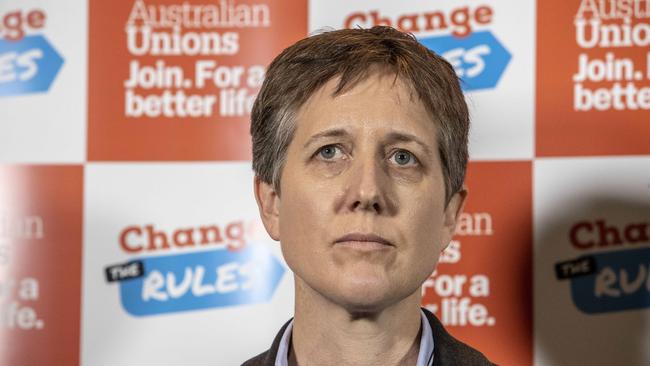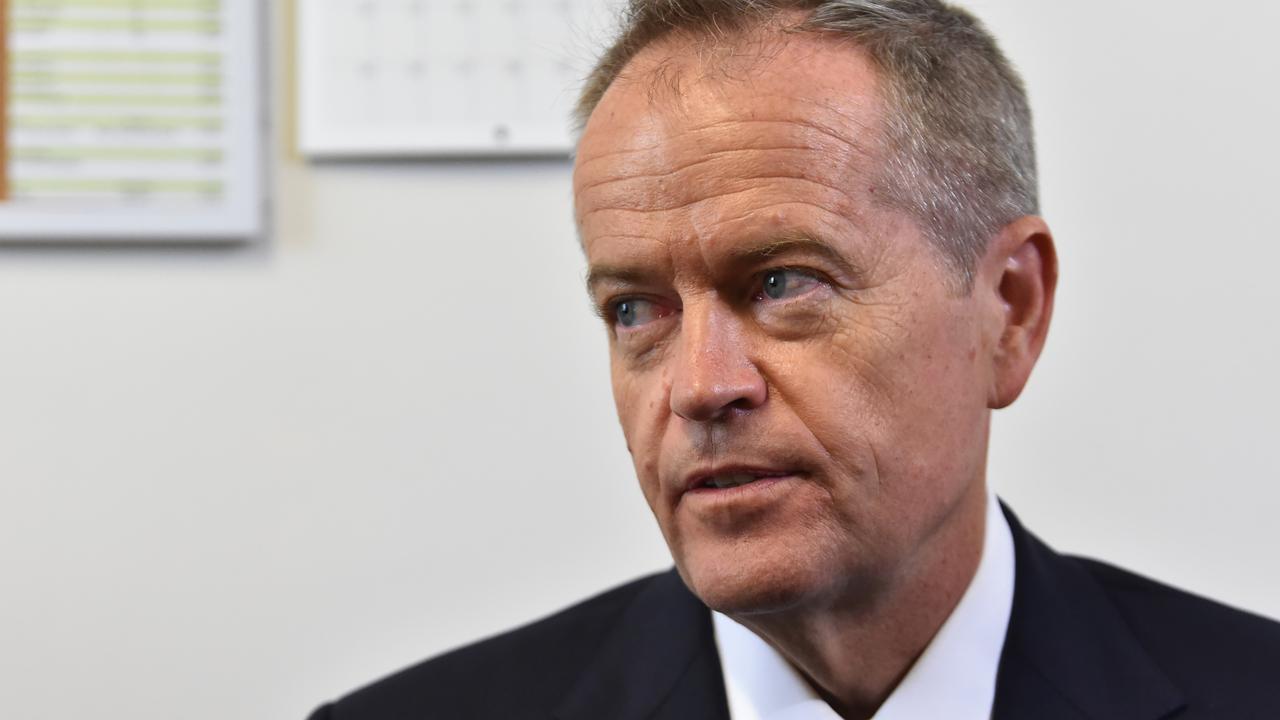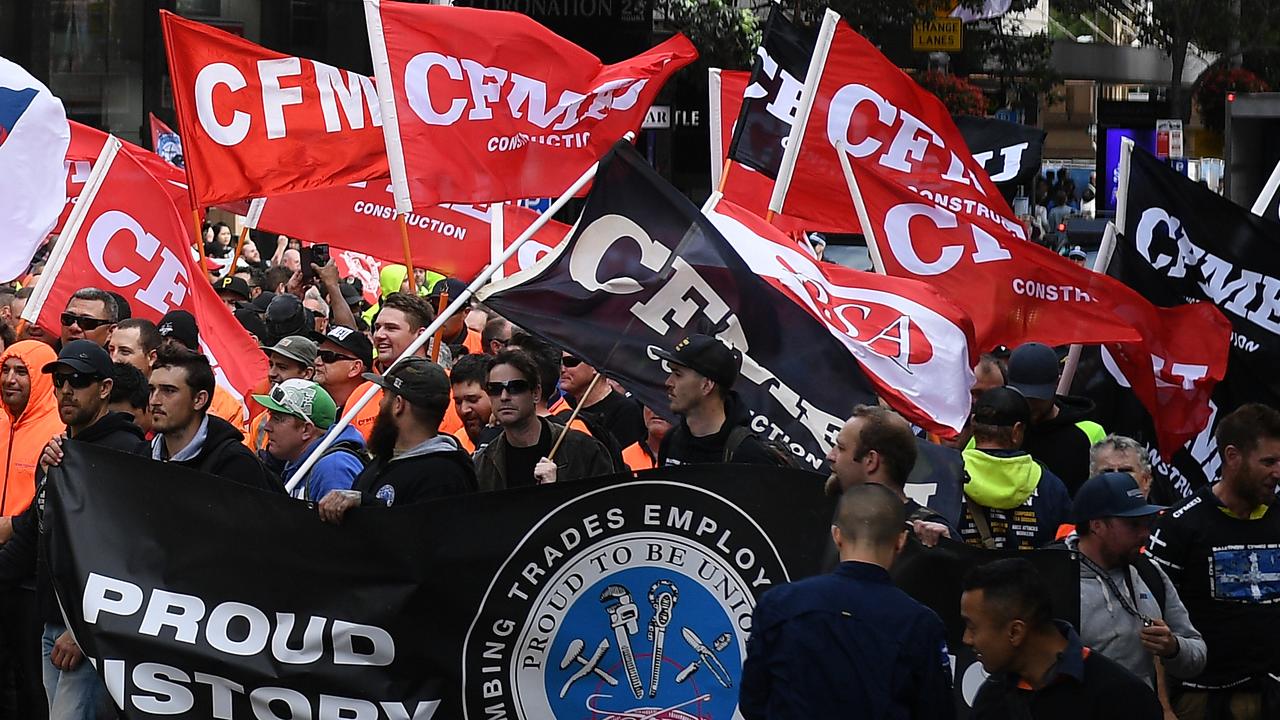ACTU leaning on Labor for return to industry-wide bargaining
ACTU secretary Sally McManus will intensify pressure on Labor for the return of industry-wide bargaining.

ACTU secretary Sally McManus will intensify pressure on the Labor Party to commit to legislating the return of industry-wide bargaining, declaring it was impossible to work with the Morrison government while it vilified unions and saw workers “as a cost to be minimised”.
In an address to the John Curtin Research Centre tonight, Ms McManus will also renew the union movement’s push for the Fair Work Commission to be given new powers to award compensation for underpayment of wages and superannuation.
Unions have highlighted aged care, childcare and universities as sectors where workers should have the legal power to conduct multi-employer bargaining.
Federal Labor has left open legislating to allow workers to strike in support of sector-wide pay claims, and Ms McManus insists industrial action in support of sector-wide pay claims would be a “last resort”.
Labor says low-paid bargaining laws allowing claims on multiple employers have been an “abject failure” and will be rewritten. While Labor has not ruled out allowing wider industry bargaining, it says the ALP’s “priority” is the low-paid bargaining stream.
Ms McManus says it is in the national interest to take wages out of competition between similar organisations. “While enterprise bargaining did assist for some time achieving productivity improvements, these productivity improvements have been exhausted at the enterprise level,’’ she says. “Now bargaining has become an almost ritualised period of conflict over wages or from the perspective of workers, fights to resist the pressure to further cut wages and job security. There is now little talk about productivity or innovation as this cannot be seen outside the narrow focus on wages and wage competition.
“Workers must be able to negotiate across sectors and industries to establish a solid basis for more secure, fairly paid work. This will allow business owners and working people to come together to improve productivity, quality and innovate new products and services.”
Ms McManus says Australia is “ trapped in the policies of trickle-down extremists of the Abbott/Turnbull/Morrison government”.
“While the Liberal Party continues to see working people as a cost to be minimised and their unions as something to be vilified, it is impossible to work with them to achieve the positive outcomes that benefit working people and the communities in which they live,’’ she will say.
“It is why we have so often turned to the Labor Party to enact legislation that ensures working people have the rights they need to balance out the power of big business and achieve more secure work and better pay.”
While Labor and unions had not always agreed, she said the “party of John Curtin” was the party of full employment, with a track record of reform that benefited workers.
“Labor may not always get it right but at least it’s focused on the right goals. We must keep that focus,’’ she says.
Ms McManus says the “very powerful in our country have a very strong vested interest” in thwarting the union movement’s objectives.
“We got an insight into how far they will go just one month ago when two billionaire media barons talked about getting rid of a prime minister. They both talked about the importance of protecting their extreme wealth and the fact a new government may change the rules to favour working people,’’ she says
Ms McManus says the current workplace system “favours the boss who steals wages”.
“It should not be a costly, lengthy process for working people to get back wages that have been stolen from them,’’ she says.


